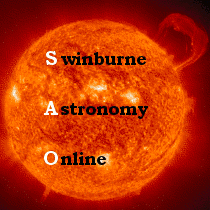Cosmic Censorship Conjecture
Given high enough densities, Einstein’s theory of general relativity predicts that matter can suffer a cataclysmic collapse to a point-like region where both the density of matter and the curvature of spacetime diverge (tend towards infinite values). This is referred to as a singularity, and also describes the formation of a black hole.
In the case of a black hole, the singularity is hidden from view by an event horizon, but there is nothing in general relativity that says that this has to be the case. In other words, general relativity does not preclude the existence of naked singularities. This is very disturbing on both theoretical and observational grounds, as physical conditions become increasingly extreme, and ultimately the laws of physics break down entirely, as one approaches a singularity.
To avoid this situation, in the late 1960s Roger Penrose proposed that there be some physical principle, as yet not understood, that excludes naked singularities as solutions to the equations of general relativity. In other words, every singularity must possess an event horizon that hides the singularity from view. This is known as the ‘cosmic censorship conjecture’.
Study Astronomy Online at Swinburne University
All material is © Swinburne University of Technology except where indicated.

